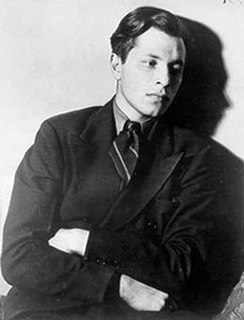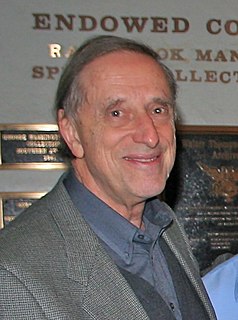A Quote by Edward Said
exile is strangely compelling to think about but terrible to experience. It is the unhealable rift forced between a human being and a native place, between the self and its true home: its essential sadness can never be surmounted. And while it is true that literature and history contain heroic, romantic, glorious, even triumphant episodes in an exile’s life, these are no more than efforts meant to overcome the crippling sorrow of estrangement.
Quote Topics
About
Being
Between
Compelling
Contain
Efforts
Episodes
Essential
Estrangement
Even
Exile
Experience
Forced
Glorious
Heroic
History
Home
Human
Human Being
Life
Literature
Meant
More
Native
Native Place
Never
Overcome
Place
Rift
Romantic
Sadness
Self
Sorrow
Strangely
Terrible
Than
Think
Triumphant
True
True Home
While
Related Quotes
The Gnostics believed that exile was the essential condition of man. Do you agree? I do. The artist and the addict both wrestle with this experience of exile. They share an acute, even excruciating sensitivity to the state of separation and isolation, and both actively seek a way to overcome it, to transcend it, or at least to make the pain go away. What is the pain of being human? It's the condition of being suspended between two worlds and being unable to fully enter into either.
Probably all of us, writers and readers alike, set out into exile, or at least into a certain kind of exile, when we leave childhood behind...The immigrant, the nomad, the traveler, the sleepwalker all exist, but not the exile, since every writer becomes an exile simply by venturing into literature, and every reader becomes an exile simply by opening a book.
Let the average man be put to the proof on the question of who is above, and his true position will be exposed. Let him be forced into making a choice between God and money, between God and men, between God and personal ambition, God and self, God and human love, and God will take second place every time.
If there is anything good about exile, it is that it teaches one humility. It accelerates one’s drift into isolation, an absolute perspective. Into the condition at which all one is left with is oneself and one’s language, with nobody or nothing in between. Exile brings you overnight where it would normally take a lifetime to go.
Dalai Lama has made new opportunities for women that they never had in Tibet, introduced science into the monks' curriculum and had Tibetan students in exile take their classes in English after the age of ten so that they will know more about the outside world. But one of the great things he's done is to bring all the Tibetan groups together in exile, as perhaps they couldn't have been when they weren't in exile and they weren't under such pressure.
True values entail suffering. That’s the way we think. All in all, we tend to view melancholia as more true. We prefer music and art to contain a touch of melancholia. So melancholia in itself is a value. Unhappy and unrequited love is more romantic than happy love. For we don’t think that’s completely real, do we?…Longing is true. It may be that there’s no truth at all to long for, but the longing itself is true. Just like pain is true. We feel it inside. It’s part of our reality.
So while it is true that children are exposed to more information and a greater variety of experiences than were children of the past, it does not follow that they automatically become more sophisticated. We always know much more than we understand, and with the torrent of information to which young people are exposed, the gap between knowing and understanding, between experience and learning, has become even greater than it was in the past.
Life, it is true, can be grasped in all its confused futility merely by opening one's eyes and sitting passively, a spectator on the stands of history - but to understand the social processes and conflicts, the interplay between individual and group, even the physicality of human experience, we have need of small-scale models.
Mothers know the difference between a broth and a consommé. And the difference between damask and chintz. And the difference between vinyl and Naugahyde. And the difference between a house and a home. And the difference between a romantic and a stalker. And the difference between a rock and a hard place.





































